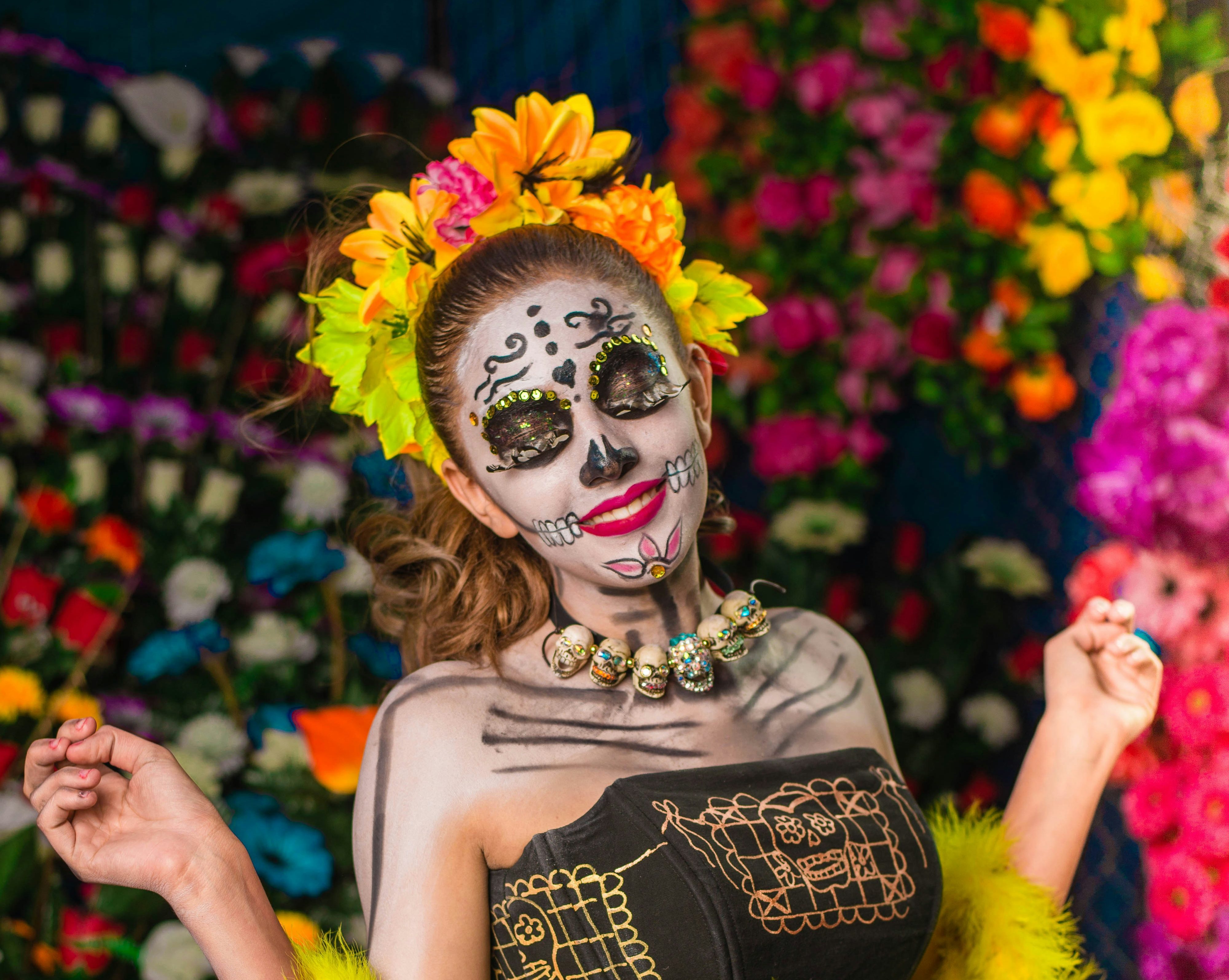Día de los Muertos (Day of the Dead) is a vibrant Mexican holiday celebrated on November 1st and 2nd. It’s a time for families to honor and remember their loved ones who have passed away—with joy, love, and a colorful flair!
What to Expect:
-
Sugar Skulls 🎉
Colorful, sweet, and often adorned with names, these calaveras de azúcar represent the sweetness of life. -
Delicious Food 🍴
Expect pan de muerto (sweet bread), tamales, and hot chocolate. It’s a feast to remember those who’ve passed while celebrating life! -
Festivities 🎶
Music, dancing, and joyful gatherings. This holiday is about bringing people together to celebrate life and legacy.
The Ofrenda: The Heart of the Celebration
An ofrenda (altar) is the centerpiece, decorated with marigolds, candles, photos, and favorite foods of the departed. It’s believed to guide spirits back home for the celebration.
How It’s Celebrated in the U.S.
While Día de los Muertos originated in Mexico, it has grown in popularity across the U.S., especially in cities with large Mexican and Latino communities. Parades, festivals, and art exhibits pop up, with people creating elaborate altars in public spaces, schools, and homes.
In many places, you’ll find vibrant community celebrations, where people make altars, decorate with marigolds, and even paint their faces like sugar skulls! These events often include face painting stations, live music, and art showcases—bringing together people of all backgrounds to celebrate life and remembrance.
Which Religions Incorporate Día de los Muertos?
Día de los Muertos has roots in indigenous Mexican traditions, particularly from the Aztec civilization, which believed in honoring the dead through rituals and offerings. When Spanish Catholicism arrived, the holiday blended with All Saints’ Day and All Souls’ Day (November 1st and 2nd), creating a fusion of Catholic and indigenous spiritual practices.
Today, Día de los Muertos is observed by people of various Christian denominations, especially in Latin American countries and U.S. communities with Mexican heritage. It’s also celebrated by people who may not follow a specific religion but embrace the cultural and spiritual significance of remembering loved ones.
A Celebration for Everyone
Día de los Muertos has grown beyond its origins, embracing people from all cultures and religions who see the value in celebrating life, love, and family. Whether you’re Catholic, Christian, or follow another tradition, it’s a beautiful way to connect with the past and create new memories with those still here.
¡Feliz Día de los Muertos! 🎉💀


